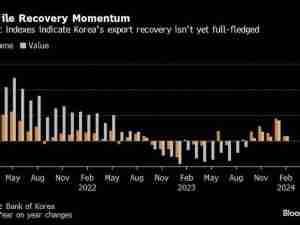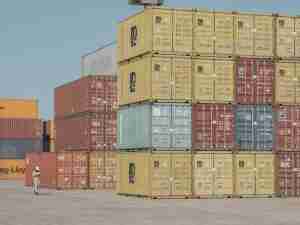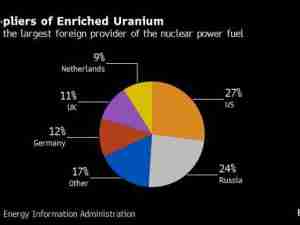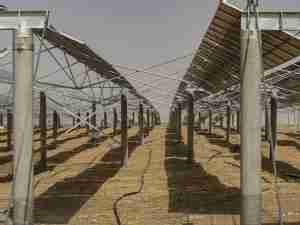The Trump administration said it’s weighing whether to increase the proposed tariff on $200 billion of Chinese goods to 25 percent from 10 percent, stepping up pressure on Beijing to change its trade practices.
President Donald Trump has asked U.S. Trade Representative Robert Lighthizer to consider hiking the duties, which could be implemented as early as next month.
The proposed higher tariff “is intended to provide the administration with additional options to encourage China to change its harmful policies and behavior and adopt policies that will lead to fairer markets,” Lighthizer said in an emailed statement Wednesday.
Bloomberg reported on Tuesday that the administration was considering boosting tariffs to 25 percent. The U.S. is open to renewing formal negotiations with China, though Beijing must agree to open its markets to more competition and stop retaliating against U.S. trade measures, according to two senior administration officials who briefed reporters on the condition of anonymity.
The move to more than double the proposed tariff may inflame already heightened tensions between the world’s two largest economies. The International Monetary Fund has cited escalating trade disputes as a growing downside risk that’s threatening the strongest global economic upswing in seven years.
Increasing the pressure on China by threatening even higher tariffs could backfire. Beijing responded to news reports on Tuesday about the planned tariff increase by cautioning the U.S. against “blackmailing and pressuring” and it vowed to strike back at every escalation.
TVs, Handbags
The administration last month released a list of thousands Chinese products it wants to slap with an additional 10 percent in tariffs, ranging from television components to handbags and seafood to baseball gloves. The duties could take effect after the administration draws up its revised, final list of imports following a public comment period. Hearings are scheduled for Aug. 20 to 23 and the comment period has been extended to Sept. 5 from late August, according to Lighthizer’s office.
The first wave of 25 percent tariffs on $34 billion of Chinese goods took effect last month, prompting immediate in-kind retaliation from China, and the next round on $16 billion could be implemented by the U.S. in the coming days or weeks.
Trump said last month that he’s willing to impose tariffs on every good imported from China, which totaled more than $500 billion last year. American companies, industry and consumer groups have pleaded with the administration to avoid tariffs, saying they could raise their costs and eventually lead to price hikes for consumers.
Inflation Factor
Implementing the tariffs would complicate the Federal Reserve’s decision-making on interest rates. Omair Sharif, an economist at Societe Generale in New York, said a 25 percent tariff on the entire $200 billion product list could cause inflation to surge by 1.1 percentage point. Assuming the levies get passed along to customers, the annual increase in the consumer price index, excluding food and energy, would jump to 3.4 percent from the current rate of 2.3 percent, he said in a research note on Wednesday.
The Institute for Supply Management’s latest survey released Wednesday indicated that U.S. companies are already mulling significant investment changes. While manufacturers are experiencing healthy demand in the U.S., they’re considering expanding outside the country to avoid tariffs, Timothy Fiore, chairman of the ISM manufacturing survey, said on a conference call with reporters.
China’s Ministry of Foreign Affairs said it will fight back should the U.S. further increase tariffs. “If the U.S. takes measures to further escalate the situation, we will surely take countermeasures to uphold our legitimate rights and interests,” spokesman Geng Shuang said at a regular press conference on Wednesday.
He said China has always believed that the disputes should be resolved through talks and communications, but the dialogue should be based on “equality and respect as well as established rules and credibility.”
Representatives of U.S. Treasury Secretary Steven Mnuchin and Chinese Vice Premier Liu He are having private conversations as they look for ways to reengage in negotiations after talks broke down last month, according to people who spoke about the deliberations on condition of anonymity.







